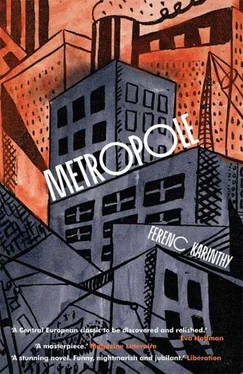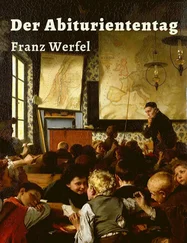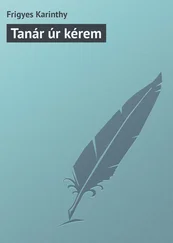‘ Tschlom brattyibratty? ’
He was probably asking something like, Who are you? Budai felt less resolved than he had done, nor had his headache greatly improved but his instinct told him that instead of trying to explain or introduce himself it might be better to ask the same thing of the other man. That is, if he had heard him properly.
‘ Tschlom brattyibratty? ’
The bearded man snorted, gave a wave and started searching in his pockets. He spent a long time looking and muttering, turning the pockets inside out — there were holes in them — feeling around the lining before emerging with a mass of miscellaneous items: a dirty handkerchief, the dry end of a loaf, matchsticks, a worn-down pencil, nails, rusty screws and, finally, a miserable looking cigarette from which most of the tobacco had fallen out but of which he offered half to Budai. Budai spread his palms to indicate that he did not smoke. Could the original question have been: Have you got a cigarette? Or: Would you like a cigarette? Who knows? Budai tried the usual languages, German, Dutch, Polish, Portuguese, not to mention Turkish and Persian, even Ancient Greek, but in vain. The other man took little notice, interrupting him.
‘Sherederebe, tódzsig hodové guehruehguehleu pratchch… Anta pratchch, vara ledebedime karitcharaprattye…’
‘What? What do you want?’ Budai bellowed in his own tongue, breaking the words up into syllables so the other man should better understand him. ‘Tell-me-what-it-is-you-want!?’
The bearded man looked at him a while with empty, clouded eyes, lit the cigarette, drew deeply on it, blew out the smoke and carried on talking exactly as he did before. Budai tried hand gestures and facial expressions to convey the fact that he was a stranger here and did not know the language but there was no way of cutting across him. The man just carried on jabbering, apparently indifferent as to whether he was understood or not. He had launched out on some longer story, his powerful, hoarse voice becoming more sweeping, more epic, pausing only to puff at the cigarette which had burned down practically to the end almost to his fingernails, at which point he chucked it away and trod on it. He continued talking, going on and on, growing ever more passionate, sometimes employing vehement gestures, occasionally croaking, bringing up phlegm, snorting, clicking his tongue, raising his voice at moments of high emotion, giving Budai the odd comical, conspiratorial wink as if to say: I’m right, aren’t I? Budai was dying to get a word in but the other cut him off with a decisive gesture:
‘Durunj!…’
And so he carried on telling his story, droning on without a break, making Budai quite giddy. His headache was coming back too. On the other hand, being locked up like this with one man was really his best opportunity yet to establish communication with someone, to discover at last where he was, to glean from his cellmate — surely there must be a way of doing this — a few key words that he might build on later. Again and again he tried to interrupt the bearded man, drawing figures in his notebook, pointing out numbers with his fingers, jabbing at himself, then at the other man in an enquiring manner, finally losing his temper and shouting at him. But nothing he did could make him shut up, he just kept talking and talking and talking.
Another thing: whenever he reached a particularly important part of his oration, he raised his left hand, closed his eyes and, for a few seconds, fell silent as if in a reverie, overcome by his own passion, breaking it with a burst of theatrical laughter. He beckoned Budai closer, bidding him just listen to this , his voice shifting, singing. It was a rich bass voice singing an unfamiliar air, an aria from an opera perhaps, in any case a more solemn, serious kind of music. You could tell from the steadiness, modulation and intonation of the voice that he was gifted, indeed trained, and that it was only his low quality of life, his itinerancy, the alcohol and nicotine that had ruined the voice, blurred it, distorted it and made it croaky. The performance seemed to take up every ounce of his being. He was completely lost in his singing, his voice recognising ever fewer barriers as it soared. The aria culminated in a grand passage in which he first climbed the scale then descended it slowly, note by note, step by step, ever lower until it seemed impossible that there should be anything lower, but then lower again, reaching his finale at the deepest point of experience, on a long-extended, dark closure.
Budai didn’t know whether to applaud or not. After the undoubted effort exerted in delivering his aria the bearded man was clearly exhausted and had started looking for another cigarette but continued to ignore Budai’s questions, staring straight ahead instead, his face grey and waxen. He blew out some more smoke, then stretched out full length on his bunk and turned to the wall. It was hotter than ever. They seemed to have turned the heat up but there was no draught anywhere. Budai’s shirt was soaked through. He took off his coat and jacket, laying them down beside him. The whole thing was so impossibly stupid, the heat so unbearable even though he was in shirtsleeves, the radiator noise so intensely disturbing that he suddenly felt so angry he started banging at the steel door, demanding that they take him away and give him a proper hearing with an interpreter present, repeating that they could not keep him in this airless cell locked up with a mad opera singer.
He made so much noise that eventually the little observation flap opened. The black warder’s face appeared, laughing again, all his teeth showing, amused by these two idiotic drunks. But when Budai shouted at him, demanding to know what right they had to treat him like this, he angrily closed the tiny flap and no amount of noise could summon him again.
The bearded man was either sleeping or talking — he talked so much in the end he must have told his entire life story. It clearly did not matter to him whether anyone was listening or what the other person said. Budai had started to think the man was deaf and that that was the reason he paid no attention to the questions he asked. To test his hypothesis he tapped the radiator with his ballpoint pen in the middle of one of the man’s tirades but the man stopped for a second and took notice — in other words he could hear — then continued as though nothing had happened, blathering on.
It had been evening when they brought him in here and he hadn’t eaten since the morning. But it seemed to be past dinner time here, at least there was no sign that they’d be receiving food soon. His cellmate seemed to be preparing for the night, squatting astride the slop pail, his trousers shamelessly round his ankles, though that did not stop him talking. He must have been cursing someone, because he was stamping his feet, threatening the unknown man with his fists, his face full of hatred and bitterness. It took the man some time to calm down, though his fury soon got the better of him again and he quickly slapped at the air twice more before turning away as if he had finished with his adversary. He wiped his hands on his trousers and spat.
Budai found it difficult to sleep on the hard prison bed, being kept awake by heat, hunger and helplessness. And when, after a long while, he did eventually succeed in dropping off with his whole body covered in perspiration, he had a vague feeling that the man had sat down beside him and was still talking, waving his hands about in front of his face, breathing cheap brandy at him. It might have been no more than a dream. It was very hot and now it was not only his head but his hand that ached.
In the morning the black warder handed them two pieces of dark brown bread and a mess-tin with some coffee-coloured liquid in it. The bearded man took a swig of it, then handed the tin to Budai who didn’t fancy it. The warder reappeared after a short interval and beckoned Budai to go with him. He was led along the same corridors as he had been the previous evening, back to the same officer with the fat pock-marked face. The policeman was still eating — a soft, over-ripe watermelon, this time, spitting the pips here and there. The room was just as hot and foul-smelling as it had been before. No one can have opened a window in the meantime. They returned Budai’s belongings to him and after finishing his melon, the policeman picked his teeth, wiped his moustache with his chequered handkerchief and barked at him:
Читать дальше












